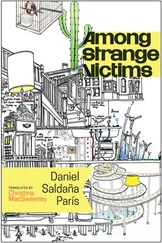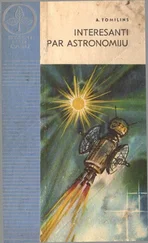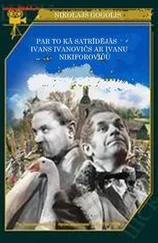Par Lagerkvist - Barabbas
Здесь есть возможность читать онлайн «Par Lagerkvist - Barabbas» весь текст электронной книги совершенно бесплатно (целиком полную версию без сокращений). В некоторых случаях можно слушать аудио, скачать через торрент в формате fb2 и присутствует краткое содержание. Жанр: Современная проза, на английском языке. Описание произведения, (предисловие) а так же отзывы посетителей доступны на портале библиотеки ЛибКат.
- Название:Barabbas
- Автор:
- Жанр:
- Год:неизвестен
- ISBN:нет данных
- Рейтинг книги:5 / 5. Голосов: 1
-
Избранное:Добавить в избранное
- Отзывы:
-
Ваша оценка:
Barabbas: краткое содержание, описание и аннотация
Предлагаем к чтению аннотацию, описание, краткое содержание или предисловие (зависит от того, что написал сам автор книги «Barabbas»). Если вы не нашли необходимую информацию о книге — напишите в комментариях, мы постараемся отыскать её.
The central crisis of the Modern Age is the crisis of faith, the failure of our belief in God. Our disbelief is an inevitable outgrowth of increased scientific understanding of the world around us, particularly in the realms of Physics and Evolutionary theory. It is a predictable corollary of the individualistic political and economic doctrines we have adopted with such success. And to a little appreciated degree, it is a function of the material comfort that we enjoy. Taken together, all of these factors have removed ignorance, superstition, subservience and desperation as reasons to believe in religion. Since Reason would require proof of God's existence, which it is probably impossible to provide, all that's really left is simple faith and, from what we've seen this past century, faith is not enough. There is much that is good about this liberation, the freeing of man from God, but there are also some terrible consequences. The most important consequence is the removal of metaphysical standards of Right and Wrong, of Truth and Beauty, and the resulting disastrous slide into moral relativity. The other main consequence is the sort of inchoate longing that, even if you haven't experienced it personally, is so readily apparent in things like the Psychiatric, Environmental, New Age and Wicca movements. Absent God and his laws, what is there to give our lives meaning and direction? What are we doing here? Do we have a purpose or are we, individually and as a species, as insignificant as science has made us seem? The difficulty of answering those questions lies at the heart of the soul sickness that human society suffers. This inability to attach meaning or value to ourselves and our actions has left an enormous void at the core of our beings and, thus far, science has offered us nothing to fill the vacuum.
Given the tremendous difficulty that even we have reconciling our skepticism with our desire for certitude, separated as we are by two thousand years from the Biblical age, imagine how much more difficult it would have been to struggle against belief if you were a contemporary who witnessed the living Christ and encountered evidence of his miracles. Imagine further that you are not just any man, but are actually the criminal who was spared from the cross when the mob was offered the choice of setting Jesus or one of his fellow prisoners free, that the innocent Christ quite literally died for your sins. This is what Par Lagerqvist has done in this beautiful and moving novel. Barabbas is set free but not before seeing the luminescent figure of Christ and hearing him plead that Barabbas be spared and not himself. Barabbas then feels compelled to follow Christ to Golgotha, where he witnesses the Crucifixion and sees the darkness fall as Christ dies. Through the rest of his life, Barabbas's path intersects with the disciples and followers of Christ. Always he resists their belief-how after all can one believe in a Savior who allows himself to be crucified-but looks for some irrefutable proof from them that Jesus was the Messiah. His ambivalence comes to represented on a medallion that he wears. On the front it says that he is property of the Roman State-it is placed on him while he is enslaved in the mines-but he has a Christian acolyte scratch the symbols on the back that show him to be a follower of Christ. Still later he scratches this out. Ultimately, while living in Rome, he hears rumors that the Christians have set the city aflame and, taking up a burning brand, he proceeds to start the fires that he hopes will signal the return of the Messiah. In the final scene, he is crucified along with Peter and the other Christians accused of arson:
When he felt death approaching, that which he had always been so afraid of, he said out loud into the darkness, as though he were speaking to it:
– To thee I deliver up my soul.
And then he gave up the ghost.
These lines concisely capture the human dilemma. The darkness reappears, recall it descended as Christ died, and Barabbas calls out "as if" he were speaking to it. Does his addressing the darkness mean that in the end he believes it is God? Or does the "as if" imply that he dies doubting? And though he delivers his soul, he gives up the ghost-is he in fact imbued with a divine spark which he can surrender to God?
I found the following story in one of the sermon's below:
Par Lagerkvist, in his short story, My Father and I, tells of an experience he had as a small boy when he and his father went for a walk one Sunday afternoon. It was a beautiful day when their walk began, but suddenly night came and they were engulfed in darkness. In order to find their way home, they followed the familiar railroad tracks. The boy was filled with great fear at the encroaching darkness, though the father walked calmly along. The boy tried to walk closer to his father. He confesses to his father that the darkness is terrifying him and the father replies:
"'No, my boy, it's not horrible,' he said, taking me by the hand.
'Yes, father, it is.'
'No, my child, you mustn't think that. Not when we know there is a God.'
I felt so lonely, forsaken. It was so strange that only I was afraid, not father, that we didn't think the same. And strange that what he had said didn't help me and stop me from being afraid. Not even what he said about God helped me… We walked in silence, each with his own thoughts. My heart contracted, as though the darkness had got in and was beginning to squeeze it.
Then, as we were rounding a bend, we suddenly heard a mighty roar behind us! We were awakened out of our thoughts and alarmed. Father pulled me down onto the embankment, down into the abyss, held me there. Then the train tore past, a black train. All the lights in the carriages were out, and it was going at frantic speed. What sort of train was it? There wasn't one due now! We gazed at it in terror. The fire blazed in the huge engine… sparks whirled out into the night. It was terrible. The driver stood there in the light of the fire, pale, motionless, his features as though turned to stone. Father didn't recognize him,… the man just stared straight ahead, as though intent only on rushing into the darkness, far into the darkness that had no end.
… I stood there panting, gazing after the furious vision. It was swallowed up by the night. Father took me onto the line; we hurried home. He said, 'Strange, what train was that? And I didn't recognize the driver.' Then we walked on in silence.
My whole body was shaking. It was for me, for my sake. I sensed what it meant: it was the anguish that was to come, the unknown, all that father knew nothing about, that he wouldn't be able to protect me against. That was how this world, this life, would be for me; not like father's where everything was secure and certain. It wasn't a real world, a real life. It just hurdled, blazing, into the darkness ahead." (Par Lagerkvist, "My Father and I," The Marriage Feast, 1954)
This story relates to Barabbas in a couple of illuminating ways. First, there is the use of darkness as a metaphor for the unknown, the abyss. Second, the name "Barabbas" itself means "son of the father"-Christ, of course, referred to himself as the "Son of Man." Though this is a historical novel, Barabbas is the quintessential modern man. Where our fathers (fathers broadly, not yours or mine) were blessed (cursed?) with an unquestioning faith which made sense of their world, we must wrestle with doubt and accompanying confusion. No book better captures this internal struggle than Par Lagerkvist's haunting novel Barabbas.










